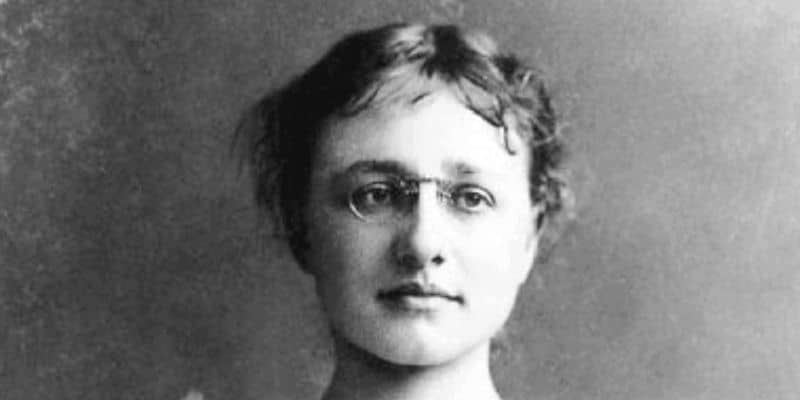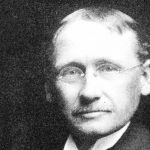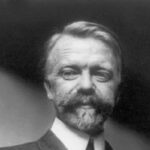Mary Parker Follett biography and theory

Mary Parker Follett (3 September 1868 – 18 December 1933) was an American sociologist, business consultant, and author of books about democracy, leadership, relationships, and management. She is considered to be the founder of modern management principles, and referred to as the mother of modern management.
Mary Parker Follett Biography
Mary Parker Follett was born in Quincy in the United states on 3 September 1968. Her father was Charles Allen Follett, a machinist who worked at a local shoe factory. Her mother’s name was Elizabeth Curtis Follett and was of English-Scottish and Welsh descent.
Mary Parker spent much of her childhood with a wealthy Quaker family in Quincy. There she studied at the Thayer Academy and took care of her family and disabled mother.
In 1888, Follett began her studies at the Collegiate Instruction of Woman at Harvard. This institution was later renamed Radcliffe College.
In 1890, before graduating, she completed a year-long program at the Newnham College, at Cambridge University. Mary Parker Follett graduated summa cum laude at Collegiate Instruction of Woman in 1898 and published her first work in 1896.
During the years between 1900 and 1908 Follett devoted her time fully to doing social work in Roxbury, a neighbourhood in Boston. In 1908 she was chosen to chair the committee on school buildings. In 1911 her committee opened the East Boston High School Social Centre. It was initially meant as an experiment, but proved to be successful and led to the introduction of countless other community centres in this neighbourhood of Boston.
From 1908 to 1920, Follett led a number of other committees dedicated to developing community centres in Boston. She was also active in the struggle for minimum wage laws. In the meantime, in 1917 she became vice president of the National Community Center Association. A year later in 1918, she published her book ‘The New State’, about communities, democracy, and governance. In it she described an organic form of democracy that was based on natural neighbourhood lines.
In her next book she focused more on the social and psychological consequences of her previous works. This book was called ‘Creative Experience’ and was published in 1924. Her ideas were applied particularly in industrial management, leading to her career as a teacher.
Her contribution to management theory development
Follett spent the last years of her career writing about management principles.
She published many works and was one of the first women who was allowed to be a speaker at the London School of Economics. There she discussed complex management issues.
She also distinguished herself in the area of management, by managing several non-profits for ex-president of the United States, Theodore Roosevelt.
Mary Parker Follett died in Boston, Massachusetts on 18 December 1933.
Famous quotes by Mary Parker Follett
- “Leadership is not defined by the exercise of power but by the capacity to increase the sense of power among those led. The most essential work of the leader is to create more leaders.”
- “There are three ways of dealing with difference: domination, compromise, and integration. By domination only one side gets what it wants; by compromise neither side gets what it wants; by integration we find a way by which both sides may get what they wish.”
- “Management is the art of getting things done through people.”
- “Unity, not uniformity, must be our aim. We attain unity only through variety. Differences must be integrated, not annihilated, not absorbed.”
- “That is always our problem, not how to get control of people, but how all together we can get control of a situation.”
- “Conflict is resolved not through compromise, but through invention.”
- “The most successful leader of all is the one who sees another picture not yet actualized. He sees the things which are not yet there… Above all, he should make his co-workers see that it is not his purpose which is to be achieved, but a common purpose, born of the desires and the activities of the group.”
- “Part of the task of the leader is to make others participate in his leadership. The best leader knows how to make his followers actually feel power themselves, not merely acknowledge his power.”
- “Give your difference, welcome my difference, unify all difference in the larger whole – such is the law of growth. The unifying of difference is the eternal process of life – the creative synthesis, the highest act of creation, the at-onement.”
- “Fear of difference is fear of life itself.”
- “The best leader does not ask people to serve him, but the common end. The best leader has not followers, but men and women working with him.”
- “I do not think we shall ever get rid of power-over; I do think we should try to reduce it.”
- “To free the energies of the human spirit is the high potentiality of all human association.”
- “We can never wholly separate the human from the mechanical side.”
Book and Publications
- 2004, 1973. Dynamic administration: the collected papers of Mary Parker Follett. Routledge.
- 2003. Mary Parker Follett prophet of management. Beard Books.
- 2000. Decades ahead of her time: advancing stakeholder theory through the ideas of Mary Parker Follett. Journal of Management History, 6(5), 224-242.
- 2000. Mary Parker Follett: prophet of chaos and complexity. Journal of Management History, 6(4), 191-204.
- 1999. Mary Parker Follett: visionary leadership and strategic management. Women in management review, 14(7), 292-304.
- 1998. New State: Group Organization the Solution of Popular Government. Penn State Press.
- 1998. Understanding empowerment and resolving its paradox: Lessons from Mary Parker Follett. Journal of Management History, 4(1), 16-28.
- 1984. Control in organizational life: the contribution of Mary Parker Follett. Academy of Management Review, 9(4), 736-745.
- 1968. Mary Parker Follett: the enduring contribution. Public Administration Review, 520-529.
- 1930. Creative experience. Рипол Классик.
How to cite this article:
Janse, B. (2019). Mary Parker Follett biography, books and management theory. Retrieved [insert date] from Toolshero: https://www.toolshero.com/toolsheroes/mary-parker-folett/
Published on: 07/18/2019 | Last update: 03/21/2023
Add a link to this page on your website:
<a href=”https://www.toolshero.com/toolsheroes/mary-parker-folett/”>Toolshero: Mary Parker Follett biography, books and management theory</a>











